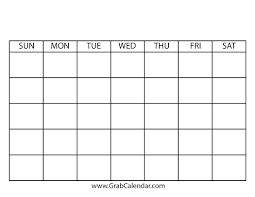What’s your expectation of communication from a young referee with no credibility with a coach yet?
“Everybody at every level of every sport goes through that. I’ll just go back to when I was young, you want that credibility, you want that coach to want to talk to you. But you know what, I’ll put this together two fold. It’s like you go up to someone’s porch. You go up the stairs. You knock on the door. Are you going to walk in or are you going to allow them to open the door and ask you to come in? You’re going to do the second. If you do the first you’ve got problems. The reason I say that is, what can I do to make them open the door and let me in? I can do all the things I can control. I can hustle. I can listen. I can get my plays right. I’ll say that lastly, if you’re getting your plays right, trust me, that will alleviate a lot of problems. Now you ask, how do you communicate? When there are times to put yourself by the coach, where you’re supposed to be and they want to talk, answer their questions. Talk basketball talk. Make it short and precise. Don’t be the guy to go over there and start initiating conversation, unless you’re trying to say help me out with 24 or something like that. You’re just asking for trouble. Again, it takes time to get that credibility. But again, listening, hustling, being a good partner, and getting your plays right. It’s amazing how that can help get your credibility built up a lot faster with any coach.”
Listening, hustling, being a good partner, and getting your plays right. It’s amazing how that can help get your credibility built up a lot faster with any coach.
-Mike Eades
How do you handle coaches that are unfamiliar with you that are trying to feel you out/push your buttons?
“If a coach didn’t know me and again this is when I’d figured things out, a little bit further in my career, and they would start getting after me about you know, they’re testing me and they’re going after me too hard about a 50/50 play. I’d get to them and I’d say hey coach, can I say something. This is when I’m going to initiate the conversation because he’s made me do that. ‘I know you don’t know me that well and that’s fine. Give me a chance to referee, give me a chance, but if you’re going to continue to come after me like that we’re going to have to come to a resolution that you’re probably not going to like. So give me a chance to referee. You want to talk, just ask me. I’ll answer your questions, but you’re going to have to stop.’ If you don’t back a coach off somehow, they’ll keep coming at you and they’re going to make you look bad…To finalize that question, you’ve got to take a stand. You have to take a stand. Be firm. Don’t yell. Don’t be waving your hands. Just talk to them firmly. Tone of voice is a tremendous thing to have. When you change your tone, they know something is up…They don’t always like it, but they’ll respect that strength that you handle them with and so will your peers and the opposing coach.
On communicating with coaches:
“This is a good way, process of dealing with a coach. How you communicate. You go over there in listening mode. That’s how I start. I’m gonna listen and then I’m going to communicate. My communication could be short or it could be basketball terminology, a little bit longer. That’s easy.”
On diffusing coaches:
“Say they start to get up here like this. When they do that, can I say or do something to diffuse that situation? I think that it is much harder to diffuse situations then to call a technical foul..When coaches start to get up here, they’re starting to lose it. When you can bring them back down, that’s good for the game. It takes everything off me, it takes everything off the coach, and we just keep playing.”
It’s amazing as you guys know, when you’re refereeing a game and the coaches are coaching and the players are playing and we’re just refereeing and the fans are fanning. It goes a lot better.
-Mike Eades
On admitting when you’re wrong:
“If you always want to act like you’re always right your credibility is going down because you’re not always right…If you always think you’re right, your room for growth is stunted because you’re not always right. It’s okay to be wrong. It’s okay to tell a coach or a player, ‘you know what man, I probably missed that. My bad.’ What can they say? They’ll tap you on the butt or give you a little nod…Perception looks good. You’ve got a little rapport built up with that player and/or coach. Next time you’re in a situation like that, the chances of it going smoothly are a lot better.”
On listening to and learning from veteran referees:
“What I would tell young guys is when you go to camps or you’re in games and the veteran guy tells you something, you just listen. Will it all make sense? No. Will it all fit you? No. Will it all always be right? No. But more often than not it will be. So take that knowledge.”
On using social media as a referee:
“I’ll tell this to all the referees out there, if you do have social media you tweet or Facebook, you have to really be careful what you put out there about games you have reffed and you are going to ref. Again, that unsolicited information gets you in trouble.
Sent from my iPad




